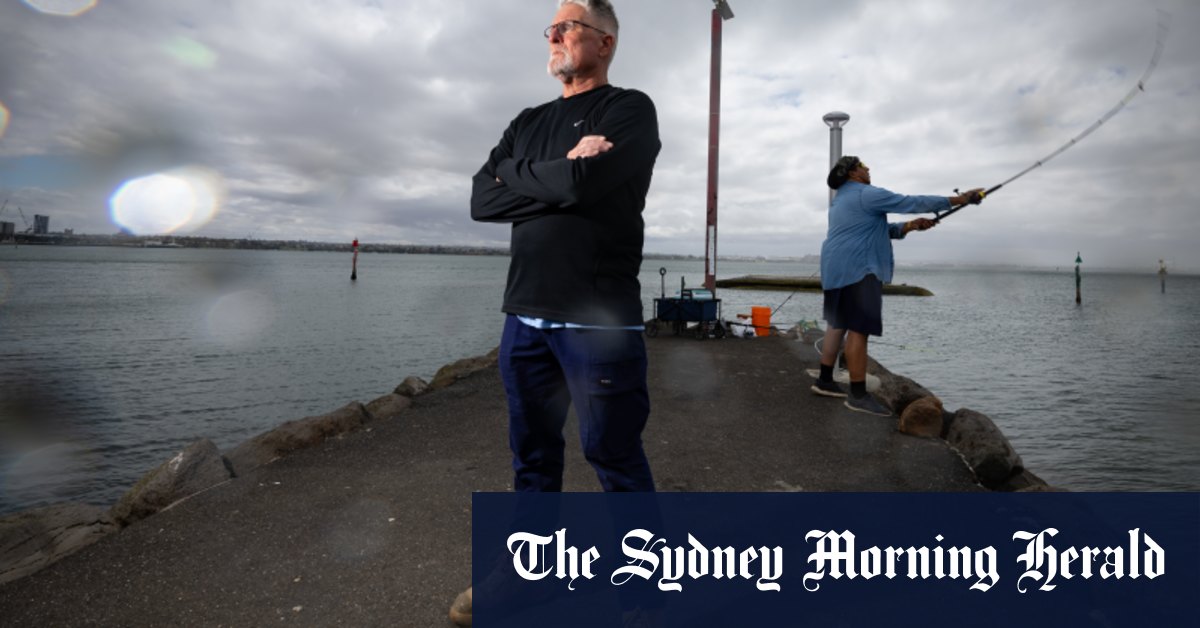Australia
Victorian Fisheries Authority job cuts would encourage organised crime, says veteran

Shift in Fisheries Management: Education Over Enforcement
The Victorian Fisheries Authority has recently announced a significant shift in its approach to managing the state’s fisheries. According to the CPSU (Community and Public Sector Union), the authority plans to establish new hubs that will focus solely on education rather than enforcement. While the VFA has not made a formal announcement regarding this decision, a spokesperson confirmed that there are proposed changes to the workforce, aimed at redirecting the agency’s focus towards education and community engagement. The spokesperson emphasized that the workforce will continue to maintain high compliance levels and tackle major fishing crimes while working closely with the community to promote responsible fishing practices.
Workforce Changes and Community Engagement
The proposed changes involve reducing the number of fisheries officers and replacing them with fisheries engagement officers who will primarily focus on community engagement. The CPSU has revealed that 73 fisheries officer positions will be cut, and only 36 fisheries engagement officers will be appointed. These new roles will emphasize education and outreach programs to ensure that both recreational and commercial fishers are aware of and comply with fishing regulations. The VFA believes that this new operating model will ensure the long-term sustainability of Victoria’s fisheries.
Concerns About Illegal Poaching and Ecological Impact
Despite the VFA’s confidence in its new approach, industry experts and retired fisheries officers have raised concerns about the potential consequences of reducing enforcement capabilities. Dave Burgess, who worked for the authority for 47 years, warned that the reduction in fisheries officers could leave marine parks vulnerable to poaching. Burgess argued that the presence of fisheries officers acts as a deterrent to illegal activities, and without adequate patrols, poachers could operate with impunity. He emphasized that fisheries officers need to be visible and proactive to prevent illegal fishing and poaching.
Kent Stannard, a marine researcher based on the Mornington Peninsula, shared similar concerns. Stannard warned that cutting the ranks of fisheries officers could lead to the overfishing of vulnerable species, potentially causing an ecological disaster. He highlighted that species such as wrasse, gummy shark, abalone, and crayfish, which are highly valued in both domestic and international markets, would be at greater risk of overfishing. Stannard also expressed concerns about the ecological balance in Victorian waters, as overfishing could disrupt the delicate relationship between predator and prey species.
The Role of Fisheries Officers and Safety Risks
Fisheries officers play a crucial role in maintaining the health of Victoria’s fisheries. They are responsible for conducting inspections, enforcing regulations, and prosecuting offenders. In the three months leading up to September 30, fisheries officers conducted over 8,100 inspections and 350 patrols in marine parks, detecting 702 offenders. These efforts have contributed to the relatively abundant fish stocks in Victoria, which are sustainably harvested. However, the reduction in the number of fisheries officers could undermine these achievements.
Kassey Dickie, an industrial organiser for the CPSU, highlighted the risks associated with reducing the number of fisheries officers. Dickie noted that the remaining officers would often have to work alone, which could pose greater risks to their safety. Fisheries officers already perform a wide range of tasks, including checking compliance, enforcing regulations, and assisting with wildlife entanglements. The CPSU has expressed concerns about the impact of these changes on both the effectiveness of fisheries management and the safety of officers.
The Future of Victoria’s Fisheries
The decision to shift the focus from enforcement to education has been met with skepticism from many in the industry. Donaldson, a former chief investigator at Fisheries Victoria, described the decision as “defying belief.” He highlighted the importance of dedicated fisheries officers in deterring illegal fishing activities and ensuring the sustainability of fish stocks. Donaldson warned that without adequate enforcement, organised crime could exploit the situation, leading to overfishing and the degradation of Victoria’s fisheries.
The VFA’s decision to reduce the number of fisheries officers and replace them with engagement officers has sparked a debate about the best way to manage Victoria’s fisheries. While the authority believes that education and community engagement are key to promoting responsible fishing practices, many experts argue that enforcement is essential to prevent illegal activities and protect vulnerable species. As the VFA moves forward with its new operating model, it will be important to monitor the impact of these changes on the sustainability of Victoria’s fisheries and the effectiveness of its efforts to combat illegal fishing.











